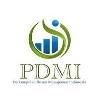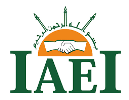The Effect of Financial Literature on Financial Behavior in The Mediation of Financial Knowledge on Student of The Faculty of Economics and Business Muhammadiyah University
Abstract
This study aimed to determine and analyze the effect of Financial Literacy on Financial Behavior mediated by Financial Knowledge on Students of the Faculty of Economics and Business, University of Muhammadiyah North Sumatra. The method used in this study is to use the associative approach and survey methods. The population was students of the Faculty of Economics and Business, University of Muhammadiyah North Sumatra, with 4158 students. The number of samples used in this study amounted to 88 people using non-probability sampling, an accidental sampling technique with the criteria for the concentration of financial management students in 2017 and 2018. The data collection techniques used in this study used interview techniques and questionnaires/questionnaires. The data analysis technique in this study used descriptive statistical analysis and path analysis with partial least squares (PLS). Data processing in this study using the Smart PLS 3 Software program. The results of this study indicate that financial literacy has a positive and significant effect on financial behavior in students of the Faculty of Economics and Business, University of Muhammadiyah, North Sumatra. Financial literacy positively and significantly affects Financial Knowledge in the Faculty of Economics and Business University of Muhammadiyah North Sumatra students.
Keyword: Financial behavior, financial literacy, financial knowledge
Full Text:
PDFReferences
Ahmad, Z., Simun, M., & Masuod, MS. "Determinants of Financial Behaviors among Dieting". Indonesian Capital Market Review, 2(2), 121-132. 2014.
Astuti, R., Tanjung, H., & Pratami, LP. "The Effect of Financial Literacy on Online Shopping Interest in Millennials". International journal of Accounting Finance in Asia Pacific, 2(3), 41-45. 2019.
Desiyanti, R. "Financial Literacy and Inclusion and the MSME utility index in Padang". BISMAN Journal of Business and Management, 2(2), 122-134. 2016.
Erawati, N., & Susanti. "The Effect of Financial Literacy, Learning in Higher Education, and Work Experience on Financial Behavior of Students of the Faculty of Economics, State University of Surabaya". Journal of Accounting Education, 5(1), 1-7. 2016.
Garman, ET, Eckert, S., & Forgue, R. "Personal finance". USA: Houghton Mifflin company. 1984.
Ghozali, I. "Multivariate Analysis Application with SPSS Program". Semarang: Diponegoro University Publishing Agency. 2011.
Gunawan, A., & Chairani, C. "Effect of Financial Literacy and Lifestyle of Finance Student Behavior". International Journal of Business Economics, 1(3), 76-86. 2019.
Gunawan, A., Pirari, WS, & Sari, M. "The Influence of Financial Literacy and Lifestyle on Financial Management of Management Study Program Students, University of Muhammadiyah North Sumatra". Journal of the humanities, Journal of social sciences, Economics and Law, 4(2), 23-35. 2020.
Gunawan, A., Pulungan, DR, & Koto, M. "Financial Literacy Level Lecturer of the Faculty of Economics and Business, University of Muhammadiyah North Sumatra". Proceedings of the Master of Management Business Seminar. 2019.
Hanbidge, AS, Sanderson, N., & Tin, T. "Using Mobile Technology to Enhance Undergraduate Student Digital Information Literacy Skills: A Canadian Case Study". IAFOR Journal of Education, 3(SE), 14. 2015.
Humaira, I., & Sagoro, EM. "The Effect of Financial Knowledge, Financial Attitude and Personality on Financial Management Behavior on Small and Medium Enterprises Actor in Batik Craft Center Bantul Regency". Nominal Journal, 7(1), 96-110. 2018.
Huston, S. "Measuring Financial Literacy". The Journal of Consumer Affairs, 44(2), 296-316. 2010.
Ida, & Dwinta, YD. "The Influence of Locus of Control, Financial Knowledge, Income on Financial Management Behavior". Journal of Business and Accounting, 12(3), 131-144. 2010.
Jorgenson, BL, & Savla, J. "Financial Literacy of Young Adults: The Importance Of Parental Socialization". Interdisciplinary Journal of Applied Family Studies, 59(4), 465-478. 2010.
Juliandi, A., Nasution, I., & Manurung, S. "Business Research Methodology Concepts and Applications". Medan: UMSU Press. 2014.
Justyn, F., & Marheni, DK. "The Influence of Financial Attitude, Financial Education, Financial Knowledge, Financial Experience, and Financial Behavior on Financial Literacy in Batam City Students". Journal of Global Business and Management Review, 2(1), 21. 2020.
Kartawinata, BR, & Mubaraq, MI. "The Effect of Financial Competence on Financial Literacy for Women in Makassar". OIKOS Journal of Economics and Economics Education Studies, II(2), 87-100. 2018.
Kholilah, N. Al, & Iramani, R. "Study of Financial Management Behavior in Surabaya Society". Journal of Business and Banking, 3(1), 69. 2013.
Lusardi, A., Mitchell, OS, & Curto, V. "Financial Literacy among the Young: Evidence and Implications for Consumer Policy". Journal of Consumer Affairs, 44(2), 358-380. 2010.
Margaretha, F., & Pambudhi, RA. "Financial Literacy Level for Undergraduate Students". Jmk, 17(1), 76-85. 2015.
Mien, NTN, & Thao, TP. "Factors Affecting Personal Financial Management Behaviors: Evidence from Vietnam". Proceedings of the Second Asia-Pacific Conference on Global Business, Economics, Finance and Social Sciences (AP15Vietnam Conference), 10(5), 1-16. 2015.
Miller, M., Goddfrey, N., Levesque, B., & Stark, E. "The case for Financial Literacy in developing countries: promoting access to finance by empowering consumers". Washington, DC: The International Bank for Reconstruction and Development/The World bank. 2009.
Mubarrok, MR. "The Effect of Financial Knowledge and Materialism on Student Financial Management Behavior with Impulsive Buying as a Mediation Variable". STIE Perbanas Surabaya. 2017.
Nababan, D., & Sadalia, I. "Analysis of Personal Financial Literacy and Financial Behavior of undergraduate students of the Faculty of Economics, University of North Sumatra". Journal of Management information media, 1(1), 1-15. 2013.
Nasution, MI, Fahmi, M., Jufrizen, J., Muslih, M., & Prayogi, MA. "The Quality of Small and Medium Enterprises Performance Using the Structural Equation Model-Part Least Square (SEM-PLS) ". Journal of Physics: Conference Series, 1477(2020), 1-7. 2020.
Nurhayati, Enung & Wiharno, H. (2017). "Financial Literacy Among Students". JRKA, 3(2), 20-33.
OJK. "Indonesian Financial Literacy National Strategy". 2013.
Pritazahara, R., & Sriwidodo, U. "Financial Literacy: Knowledge, Confidence and Financial Behavior of Accounting Students. Journal of Economics and Entrepreneurship, 15(1), 28-37. 2015.
Pulungan. "Financial Literacy and Its Impact on the Financial Behavior of the Medan City Community". Economist: Journal of Economics and Studies, 17(1), 1-15. 2017.
Pulungan. "Analysis of student financial behavior that is influenced by financial literacy and parental income". Seminar of Social Sciences Engineering & Humanities, 162-173. 2020
Pulungan, DR, & Febriaty, H. "The Influence of Lifestyle and Financial Literacy on Consumptive Behavior of Students". Journal of Management Science Research, 2(3), 103-110. 2018.
Putri, NMDR, & Rahyuda, H. "The Effect of Financial Literacy Level and Sociodemographic Factors on Individual Investment Decision Behavior". E-Journal of Economics and Business Udayana University, 6(9), 3407-3434. 2017.
Rashid, R. "Analysis of Financial Literacy Level of Management Study Program Students, Faculty of Economics, Padang State University. Journal of Business Management Studies, 1(2), 91-106. 2012.
Remund, DL. "Financial literacy explicated: The case for a clearer definition in an increasing complex economy". Journal of Consumer Affairs, 44(2), 276-295. 2010.
Ricciardi, V., & Simon, H. "What is Behavioral Finance". Business, Education, and Technology, 22((7)), 1-9. 2000
Robb, CA, & Woodyard, USA. Ej941903. "Financial Knowledge and Best Practice Behavior, 22(1), 60-70. 2011
Saraswati, E., Rispantyo, & Kristianto, D. "The Influence of the Learning Process in Higher Education on Financial Behavior with Financial Literacy as an Intervening Variable". Journal of Accounting and Information Technology Systems, 13(2), 218-229. 2017.
Setyawati, I., & Suroso, S. "International Journal of Economics and Financial Issues Does the Sharia Personal Financial Management Require? Study of Sharia Financial Literacy Among Lecturers". International Journal of Economics and Financial Issues, 7(4), 411-417. 2017.
Shahrabani, S. "The Effect of Financial Literacy and Emotions on Intent to Control Personal Budget: A Study among Israeli College Students". International Journal of Economics and Finance, 4(9), 156-163. 2012.
Sina, PG. "Personality Type In Personal Finance". JIBEKA Journal, 8(1), 54-53. 2014.
Sugiyono. "Quantitative, Qualitative and R&D Research Methods". Bandung: Alphabet. 2017.
Sugiyono. "Quantitative, Qualitative, and R&D Research Methods". Bandung: CV. Alphabet. 2018.
Widayati, I. "The Influence of Parents' Socio-Economic Status, Family Financial Management Education, and Learning in Higher Education on Students' Financial Literacy". Journal of Humanities Education, 2, No. 2(2), 176-183. 2014.
Yuningsih, I., Dewi, AS, & Gustyana, TT. "Analysis of Financial Literacy in Bandung City Society". Journal of Balance: Journal of Accounting Education and Economics, 1(1), 63-74. 2017.
Yushita, AN. "The Importance of Financial Literacy for Personal Financial Management". Nominal Journal, 6(1), 11-26. 2017.
DOI: http://dx.doi.org/10.30829/jombi.v3i01.9458
Refbacks
- There are currently no refbacks.
Copyright (c) 2021 Muslih Muslih, Trifa Maylani, Trifa Maylani







